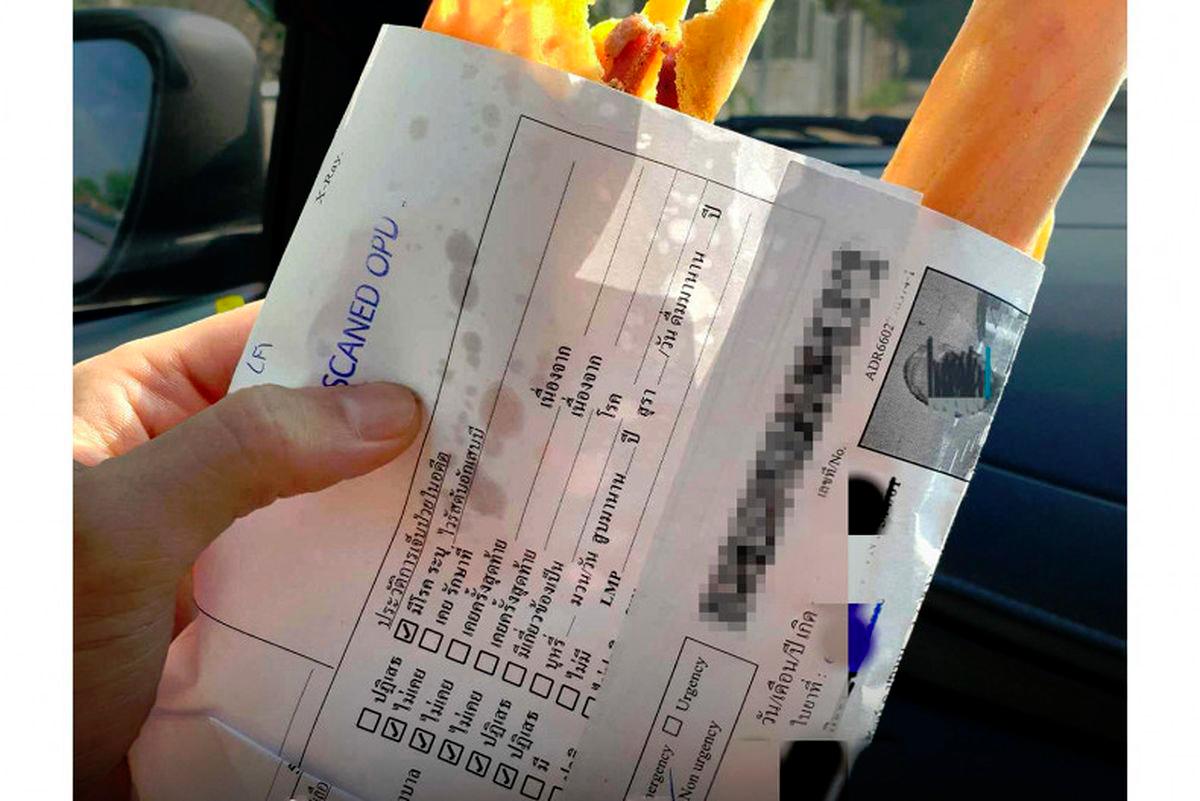A private hospital in Thailand’s Ubon Ratchathani province has been fined 1.21 million baht (approx. RM156,635) after confidential patient records were found being used as wrappers for street food.
The shocking breach came to light in May 2024 when a popular online influencer, Doctor Lab Panda, posted images of the documents being used to wrap khanom Tokyo, a Thai crispy crepe.
ALSO READ: Local woman contracts flu in Japan, made to pay RM15,000 per day for hospitalisation
The documents clearly displayed sensitive medical details, including one page revealing a patient’s hepatitis B status.
“Should I continue eating it, or is this enough?” the influencer wrote in the viral post, which quickly gained 33,000 reactions and over 1,700 comments.
An investigation by Thailand’s Personal Data Protection Committee (PDPC) confirmed that over 1,000 protected medical files had been mishandled during a file destruction process, South China Morning Post reported.
The hospital had outsourced the job to a small, family-run business without proper oversight.
Rather than destroying the files, the contractor stored them at home and failed to inform the hospital after they were leaked.
The disposal business owner has also been fined 16,940 baht (around US$520) for breaching the Personal Data Protection Act 2019, which mandates confidentiality for medical data.
This case marks one of six data privacy violations concluded by the PDPC, with the first fines under the law issued in July 2024, two years after the Act came into full effect.
Public reaction was swift and critical.
“More importance should be given to the personal rights of patients. The hospital should be sued and its licence revoked,” one commenter said.
“Buyers should boycott shops that use recycled bags like this. Vendors want to cut costs even though they know it is not safe. The medical documents should be shredded instead of being sold,” said another.
While some downplayed the medical risk—“The hepatitis B virus is unlikely to be transmitted through paper”—others voiced concerns about general hygiene.
“We are worried that the paper has passed through who knows how many hands, and the toxins contaminated with the printing ink,” a third commenter noted.









